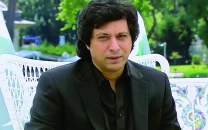6 ways you’re ruining the health perks of your coffee
As compiled from eatclean.com and Men’s Health magazine, clean up your coffee habit in least agonising ways possible

6 ways you’re ruining the health perks of your coffee
You store coffee in its original packet
Do you want to get the most nutritional bang from your beans? Then make it a habit to always store those aromatic beans in an airtight container and never in the bag it was packaged in. A study published in the journal Food Chemistry found that levels of free radicals in coffee increase with greater air exposure; and when that happens, more of coffee’s health-promoting antioxidants are used up in order to neutralise them. This results in fewer antioxidants landing into your body.
You down a cup at the crack of dawn
Major disclosure: guzzling down java at 7am isn’t going to do your energy levels any favours. That’s because in the first couple of hours after waking, your levels of the stress hormone cortisol are at their highest, which actually gives you a natural energy boost. So many experts agree that the best time to have your first cup is sometime between 10and 12pm, when cortisol levels start to dip. That way, you’ll be taking advantage of your body’s natural high, and saving that hit of caffeine for when you actually need it.
6 cups of coffee a day may cut multiple sclerosis risk
You assume dark roast has more antioxidants
Here’s one statute anyone can stick to: Drink the roast that you think tastes best, not the one you assume you should drink because it contains more antioxidants. Here’s why: “Research on the optimal type of coffee for health is still at an early stage and it’s unclear which roast is healthier,” says Rob van Dam, associate professor of nutrition and epidemiology at Harvard T H Chan School of Public Health. According to van Dam, both actually seem to be pretty good — light roasts contain more of the phenolic compound chlorogenic acid, which has been shown to help stabilise blood sugar, possess antioxidant properties, and contribute to other health benefits. Dark roasts contain higher concentrations of compounds called melanoids, which have been associated with antioxidant, anti-cancer, anti-inflammatory, and anti-hypertensive properties.
You drink way too much of it
More isn’t always better; sometimes, it could be worse. In general, the health benefits associated with coffee tend to cap off at five to six 8-ounce cups, which works out to about 400 mg of caffeine, says Frances Largeman-Roth, a nutritionist and author of Eating in Color. Drinking more than that isn’t going to be beneficial, and for some individuals, such as those who have difficulty controlling conditions like high blood pressure, diabetes, anxiety, or gastroesophageal reflux disease (GERD), the cons of excess coffee could unquestionably outweigh the pros.
You turn your cuppa into candy
One of the most amazing perks of coffee is that it’s been shown to stabilise blood sugar levels and reduce the risk of type 2 diabetes, courtesy of its antioxidants. But what about when you add sugar? According to van Dam, a little sweetness is fine, but turning your coffee into dessert is not. Some studies suggest you can add a little sugar and still experience a reduced risk of diabetes, while others have only shown those benefits for unsweetened coffee drinkers. “It’s likely a matter of quantity,” shares van Dam. As for milk or cream? You may be in the clear if these are your add-ins of choice. In fact, in one study, half of the coffee drinkers added milk to their brew and half drank it black, but both groups experienced the same reduced risk of diabetes.
It takes you forever to finish a cup
You brew a cup of coffee, take a few sips, set it down, forget where you put it, find it two hours later, reheat it, take a few sips, set it down — you get the idea. Does this sound familiar? Well, all that time spent sitting around actually increases your coffee’s acidity. Not a huge health risk, but that extra acid may up your risk of heartburn and indigestion, and potentially contribute to greater erosion of tooth enamel. Coffee that sits out too long may also pack less of an antioxidant punch due to air exposure. Researchers and experts suggest drinking coffee within 20 minutes of brewing for maximum antioxidant benefit.
Umnia Shahid
Published in The Express Tribune, June 2nd, 2016.
Like Life & Style on Facebook, follow @ETLifeandStyle on Twitter for the latest in fashion, gossip and entertainment.



















COMMENTS
Comments are moderated and generally will be posted if they are on-topic and not abusive.
For more information, please see our Comments FAQ